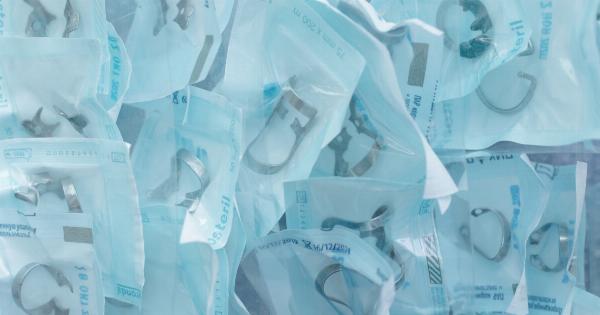High blood pressure, also known as hypertension, is a common condition that affects many people. This chronic medical condition occurs when the force of blood pressing against the walls of blood vessels is consistently too high.
If left untreated, high blood pressure can cause a variety of health complications, including heart disease, stroke, and kidney failure. But can high blood pressure also damage your teeth? Recent studies have shown that there may be a link between hypertension and dental health.
Understanding Hypertension
To understand the potential connection between high blood pressure and dental health, it’s important to first understand what hypertension is and how it can affect the body.
When blood pressure is too high, the heart has to work harder to pump blood through the body, which can put a strain on the arteries and blood vessels. Over time, this increased pressure can cause damage to the walls of the blood vessels, leading to a variety of health issues.
In addition to increasing the risk of heart disease and stroke, hypertension can also cause damage to organs such as the kidneys and eyes.
Studies have also suggested that high blood pressure may be linked to an increased risk of oral health problems, including gum disease, tooth decay, and tooth loss.
Hypertension and Gum Disease
Gum disease, also known as periodontitis, is a chronic bacterial infection of the gums and bones that support the teeth. It is a major cause of tooth loss in adults.
Research has shown that people with high blood pressure are more likely to develop gum disease than those with normal blood pressure levels. Hypertension can increase the inflammation in the body, which can lead to the destruction of the gum tissue and bone that support the teeth. The higher the blood pressure, the greater the risk of gum disease.
In addition to hypertension, other factors that can increase the risk of gum disease include smoking, poor oral hygiene, and a diet high in sugar and refined carbohydrates.
To help prevent gum disease, it’s important to maintain good oral hygiene habits, including brushing and flossing regularly, visiting the dentist for regular cleanings, and eating a balanced diet.
Hypertension and Tooth Decay
Tooth decay, also known as cavities, is a common dental problem that occurs when bacteria in the mouth produce acid that erodes the tooth enamel. This can lead to the formation of small holes or cavities in the teeth that can grow larger over time.
While poor oral hygiene and a diet high in sugar are the primary causes of tooth decay, recent studies have also suggested that hypertension may be a risk factor.
One study published in the Journal of the American Dental Association found that people with hypertension had a higher prevalence of cavities compared to those with normal blood pressure levels.
The researchers suggested that this may be due to the fact that hypertension can cause changes in the saliva, making it less effective in protecting the teeth from acid erosion. Another theory is that hypertension can increase the level of bacteria in the mouth, leading to a higher risk of tooth decay.
Hypertension and Tooth Loss
Tooth loss is a common dental problem that can have a significant impact on a person’s quality of life. It can make it difficult to eat, speak, and even smile with confidence.
While there are many factors that can contribute to tooth loss, including trauma, poor oral hygiene, and gum disease, recent studies have suggested that hypertension may also play a role.
A study published in the Journal of the American Geriatrics Society found that people with hypertension were more likely to experience tooth loss as they aged compared to those with normal blood pressure levels.
The researchers suggested that hypertension may contribute to tooth loss by causing damage to the blood vessels that supply the teeth and gums, leading to a reduction in the flow of oxygen and nutrients needed to keep the teeth and gums healthy.
Preventing Dental Problems Related to Hypertension
While hypertension can increase the risk of dental problems such as gum disease, tooth decay, and tooth loss, there are steps you can take to help prevent these issues.
As with all medical conditions, it’s important to follow your doctor’s recommendations to manage your hypertension, which may involve taking medication and making lifestyle changes such as exercising regularly and following a healthy diet.
In addition to managing your blood pressure, it’s important to maintain good oral hygiene habits such as brushing and flossing regularly, using mouthwash, and visiting the dentist for regular cleanings and check-ups.
Eating a balanced diet that is low in sugar and refined carbohydrates can also help reduce the risk of dental problems related to hypertension. Finally, quitting smoking can improve both your cardiovascular health and your oral health.
Conclusion
While more research is needed to fully understand the link between high blood pressure and dental health, recent studies suggest that there may be a connection.
People with hypertension may be at an increased risk of developing dental problems such as gum disease, tooth decay, and tooth loss. If you have high blood pressure, it’s important to work with your doctor to manage your condition and to practice good oral hygiene habits to help reduce your risk of dental problems.



























